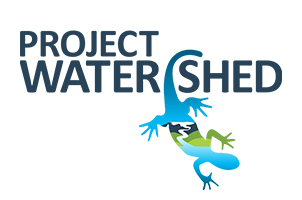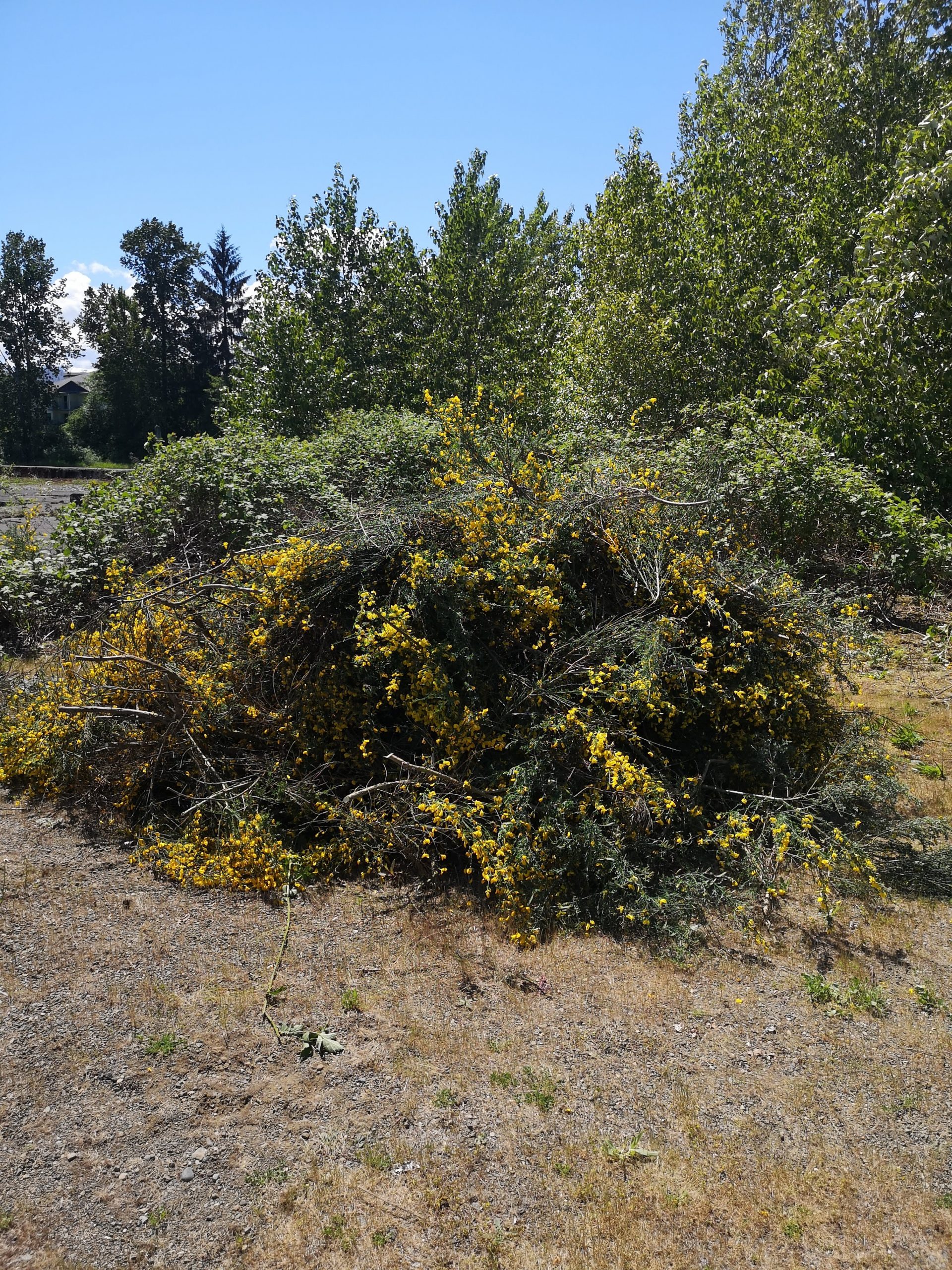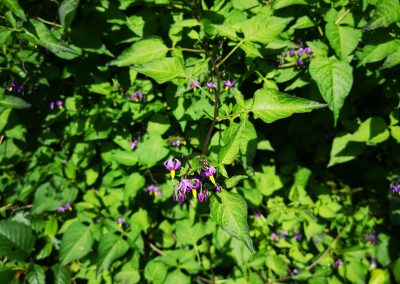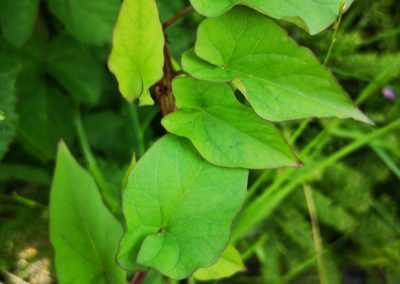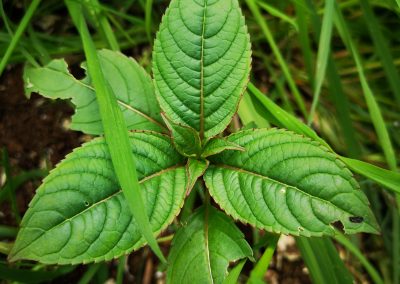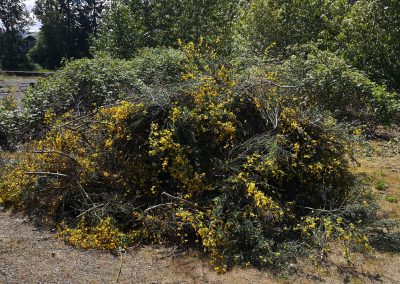Technician Report – Tuesday, Sept 7th
The environmental technician team has been hard at work removing invasive species from riparian zones. Over the last few months, we have targeted Scotch broom, European nightshade, Himalayan blackberry, morning glory, reed canary grass, and Himalayan balsam. These plants have been removed en masse due to their negative effects on the ecosystem. Invasive plants outcompete native species, decrease overall biodiversity and ecosystem resources, as well as stress fish bearing waterways.
Removing invasive plants is just one step in the process. Our team has replanted these areas with a diverse range of native species. Trees like red elderberry will increase habitat and food resources for birds while thimbleberry helps stabilize stream banks. We have also planted conifers, currants, and Oregon grape to increase plant biodiversity. With maintenance, these plants should outgrow the invasives and create a thriving ecosystem for fish, birds, and other wildlife.
With the help of the Healthy Watersheds Initiative funding Project Watershed has hired environmental technicians to assist with our projects over the summer and early fall. The Healthy Watersheds Initiative is delivered by the Real Estate Foundation of BC and Watersheds BC, with financial support from the Province of British Columbia as part of its $10-billion COVID-19 response. Jamie Lund, one of these technicians, will be posting a brief report every Tuesday to update the Project Watershed community on what they have been up to.
Related Posts
Mallard Creek Restoration Update for 2024
Restoration work in Mallard Creek will continue this year, including invasive removal, restoring connectivity, and trial planting of a new riparian species. Volunteer events starting in September 2024.
Volunteer at Kus-kus-sum Chamber of Commerce Event
We are showing Kus-kus-sum off to businesses in the Valley through a Chamber Business to Business event. We are looking for a few volunteers to assist with this event.
Coastal Plant Monitoring
Get involved with our new vegetation community science monitoring program!
Spring Field Trips
Throughout May and June Project Watershed will be taking elementary school classes out on field trips to learn about estuary and coastal ecology and to assist with planting and plant maintenance.
Working Together to Identify Forage Fish Spawning Beaches
This year marks the 5th year of a partnership between Comox Valley Project Watershed Society and North Island College on a long-term study to examine intertidal spawning habitats of forage fish in the northern Salish Sea.
Glen Urquhart Update – Spring 2024
Latest news from Glen Urquhart restoration progress for spring 2024.

